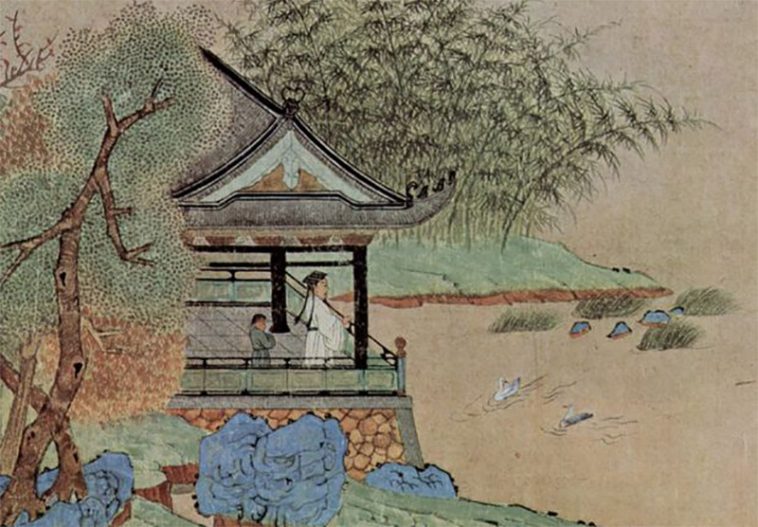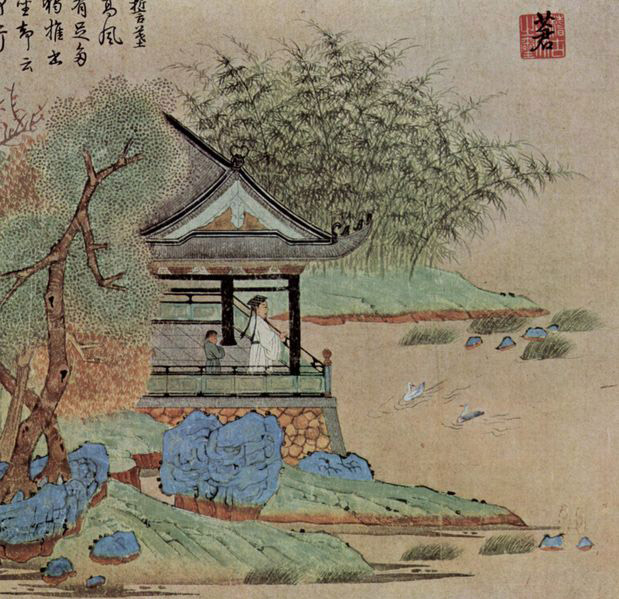The Apostrophe Blog
“With heaven and earth contained in your head, nothing escapes the pen in your hand.”
—Lu Chi in The Art of Writing
Sometimes it is by going back (often thanks to new translations) to study a timeless and ancient text that I find the most timely and relevant wisdom about the writing craft.
During a recent bookshelf purge, I unearthed not one but two copies of Lu Chi’s Wen Fu (The Art of Writing). One is a slim brown volume translated by Sam Hamill and published by Breitenbush Books of Portland, Oregon. The other, translated by Tony Barnstone and Chou Ping (Shambala), includes not just The Art of Writing but texts about writing and poetry from other Chinese masters.
Lu Chi (or Lu Ji((en.wikipedia.org/wiki/Lu_Chi)) as he is also known) came from a military family. His grandfather won the throne for Emperor Wu and was given a dukedom. Then, warring between political factions erupted and Lu Chi and his brothers were placed under house arrest for a decade. That’s when Lu Chi started to study Confucianism and Taoism. Later, the power struggles continued and Lu Chi was accused of treason. He and his sons were executed soon after. The Art of Writing—his thoughts about how to write well penned around 300 A.D.—has lived on.
Both a cosmic and practical treastise, The Art of Writing was originally a rhymed prose piece of literary criticism that often speaks to the place where mysticism and inspiration meet. Barnstone and Ping call it an “ars poetica” in the spirit of Pope and Horace. While some of the ideas surely get lost in the translation—both literally and through the intervening years and the cultural and religious differences between East and West—my recent readings brought a few new kernels of wisdom home to me.
Lu Chi covers an astonishing array of topics from genres to styles, finding form to revision. On my recent passes through both volumes, I made my own shorthand list of writing mantras to turn to when I feel the need:
Writer’s block is a dead river. Inspiration is a thought wind. Writing is an essential relationship, a spiritual voyage connecting impulse with action, words with music, and self to the world.
You get the gist.
Mightily influenced by Lu Chi, Howard Nemerov((en.wikipedia.org/wiki/Howard_nemerov)), the former United States Poet Laureate and elder brother of the photographer, Diane Arbus((en.wikipedia.org/wiki/Diane_Arbus)), penned a long poem, “To Lu Chi.” An excerpt:
Through many centuries of dust, to which
We both belong, your quiet voice is clear
About the difficulties and delights
Of writing well, which are, it seems, always
The same and generally unfashionable.
In all the many times I have read your poem,
Or treatise, where the art of letters turns
To the inspection of itself—the theme
(I take your phrase) of how to hold the axe
To make its handle—your words have not failed
To move me with their justice and their strength,
Their manner gentle as their substance is
Fastidious and severe. You frighten me
When you describe the dangers of our course,
And then you bring, by precept and example,
Assurance that a reach of mastery,
Some still, reed-hidden and reflective stream
Where the heron fishes in his own image,
Always exists.
On this Ides of March((en.wikipedia.org/wiki/Ides_of_March)) Sunday in the Pacific Northwest, with its wild winds and speeding-by clouds and at least a dozen rain showers with sun breaks in between, it has been a lovely luxury to dive into Lu Chi’s words and fish up handfuls of pearls.
I especially like Sam Hamill’s translation of the final prose poem. He entitled it, simply, “Conclusion”— Consider the use of letters, for all principles demand them. Though they travel a thousand miles & more; nothing in the world can stop them; they traverse ten thousand years. Look at them one way, and they clarify laws for the future; look at them another, and they provide models from old masters. The art of letters has saved governments from certain ruin and propagates proper morals. Through letters there is no road too distant to travel, no idea too confusing to be ordered. It comes like rain from the clouds; it renews the vital spirit. Inscribed on bronze & marble, it honours every virtue; it sings through flute and strings, and every day is made newer.
An online version of Wen Fu, The Art of Writing is here((www.mnstate.edu/gracyk/courses/web publishing/LuChi.htm)).
- Acceptance News: 2025 Rapid Response Anthology - July 12, 2025
- Don’t Fence Me In! - July 5, 2025
- Nothing to Celebrate Today… - July 4, 2025


